Magazine
The tragedy giving hope to Syria's women
- 5 July 2015
- Magazine
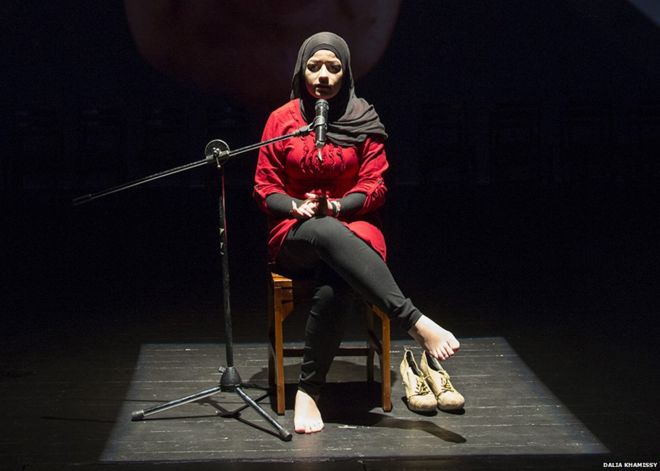
Syria's civil war has created nearly four million refugees - most have lost family members in the conflict and are living in camps in neighbouring countries. Women in one of these centres have joined a drama project and are finding that an ancient Greek tragedy is proving cathartic.
I read Antigone a few weeks before going to Beirut. I was interviewing the Oscar-winning French actress Juliette Binoche as she rehearsed for a new production in London, and I thought I should get up to speed before we spoke.
For those who don't know the play, Antigone is the story of a young woman whose city had been ripped apart by civil war. Her dead brother is lying outside the walls and she wants to bury him. But he'd fought on the losing side and his body has been left out to rot as an example. If Antigone defies the king's decree and buries him, she herself will face death.
Feminists love Antigone because it's about a young woman defying male authority. But Juliette Binoche thinks it speaks to all of us on a deeper level, male or female, and regardless of our ethnicity or religious beliefs, we all want and need to bury our loved ones. It's an important part of the grieving process.
Little did I know that some weeks later I would be sitting in a room in Beirut watching a group of about 30 Syrian women refugees perform the same play. Greek dramas always have big casts because of the chorus. They actresses range in age from early 20s to late 50s. Most are mothers, many are widows - all dressed in long black abayas with their heads covered, but not their faces. Many of the younger ones are heavily made up with jeans underneath their black robes and some pretty sexy high-heeled shoes.
None of them has ever acted before or seen a piece of theatre. Indeed, for most of their lives, these women rarely left the confines of their own homes. And yet their performances have a power that put Juliette Binoche in the shade. I speak to them afterwards and ask the same question I'd put to the actress. Why do they think this Greek tragedy is still relevant today?
Muntaha is the first to answer. "I lived this story," she says raising her hand to her heart and hitting her chest several times for emphasis. "My brother was detained, taken away by the regime in Syria. I think he is dead and I want to bury him but I can't. I don't know where his body is," she says, her voice full of anguish and her eyes brimming with tears.
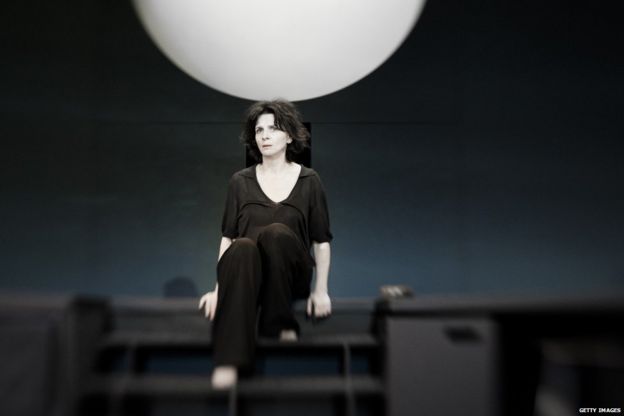
Antigone of Shatila is named after the refugee camp these women now call home. Camp doesn't describe it properly. It's an overcrowded, fetid slum measuring 1 sq km in the centre of Beirut. Built in 1948 to house Palestinian refugees, the population has doubled in size over the past three years. It's estimated that one in four of the Lebanese population is a Syrian refugee.
The streets of Shatila are dark and narrow. On every wall or lamp post there's a picture of a martyr. Even the name of this camp is synonymous with death after the 1982 massacre of Palestinian refugees by the Phalangists, an Israeli-backed Christian militia. The ground is strewn with rubbish and hanging overhead are perilous birds' nests of electric wires. When it rains, the electric current permeates the damp concrete walls, electrocuting the inhabitants. At the Basmeh and Zeitooneh community centre, I am told the story of a widow who fled Syria with her children only to see one of them die from an electric shock in their Shatila hovel.
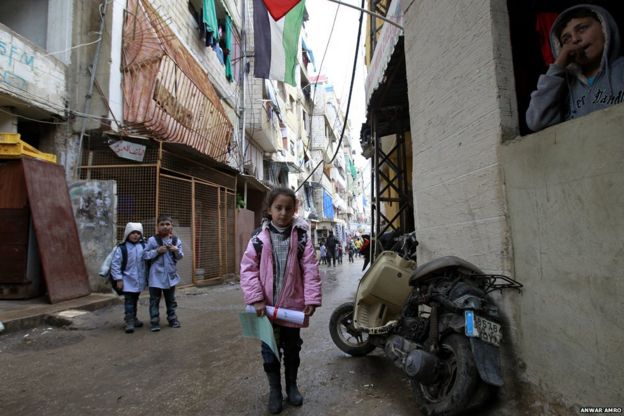

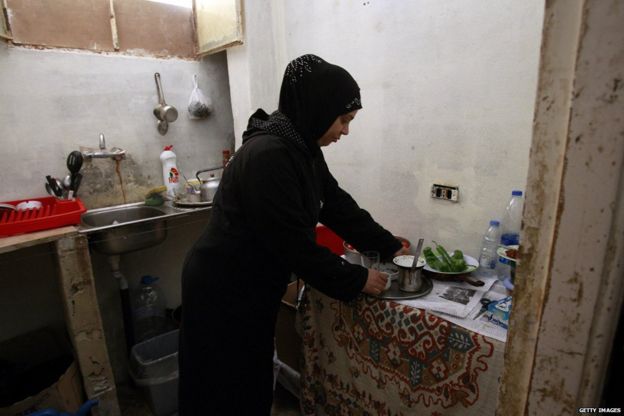
Antigone in Shatila was produced by a well-known theatre director and a playwright from Damascus, both now refugees. The playwright wrote down the women's stories and incorporated them into the Greek text. The funding for the project came from Unicef and the British Council. Is it right, I ask the Syrian women cast members, to spend money on drama projects when there are so many other pressing needs such as food, shelter, electricity, schools?
Muntaha grabs my hand and holds it tightly. "We need this. Do you know how lonely and depressed all of us were? These women have lost everything, their homes, their husbands, some of them have lost children."
"Before we were introduced to Antigone's story, we felt alone," says Fadwa. "Then we realised these tragedies keep happening throughout history and it gave us the courage to speak out. Together we feel stronger and more confident."
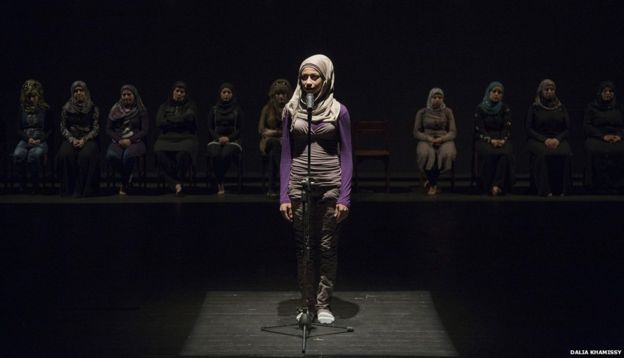

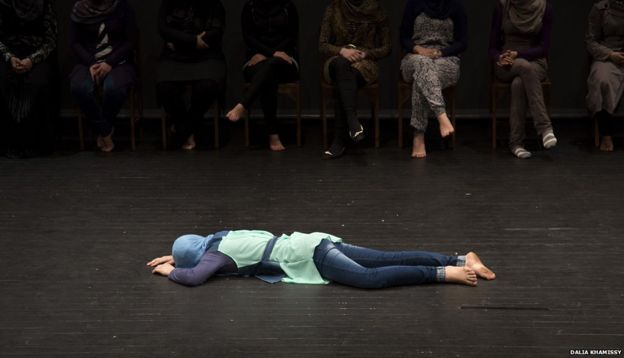
The director would like to take the show on tour in Europe. He has the support of the British Council and the French Institute and invitations from festivals and theatres in both countries. But everyone agrees this is unlikely to happen because the women won't get visas.
Wallah, a beautiful young woman who grew up in a Palestinian camp in Damascus, says she'd like to be a professional actress. "I've written a sketch - me and my friend performed it yesterday," she tells us, smiling proudly. What's it about, I ask? "A martyr."
And the men, their brothers, husbands, fathers, what do they think of them acting?
"My husband is an angry man," says one young woman who married aged 14, "and me doing this play makes him even angrier. He refused to come and see it - but I don't care." She smiles defiantly, emboldened by the feisty Antigone, a young woman brave enough to defy her king.
How to listen to From Our Own Correspondent:
BBC Radio 4: Thursdays at 11:00 BST and Saturdays at 11:30. Listen online or download the podcast.
BBC World Service: At weekends - see World Service programme schedule or listen online.
Subscribe to the BBC News Magazine's email newsletter to get articles sent to your inbox.
Magazine
Out of the shadows
- 3 hours ago
- Magazine
First kiss
- 3 hours ago
- Magazine
Different in Dubai
- 12 July 2015
- Magazine
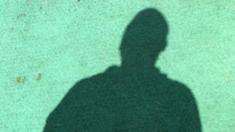
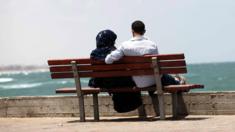
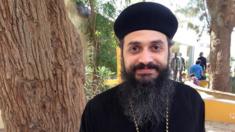







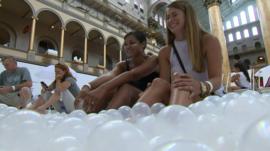






No comments:
Post a Comment
Please leave a comment-- or suggestions, particularly of topics and places you'd like to see covered